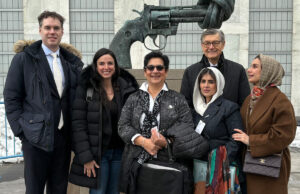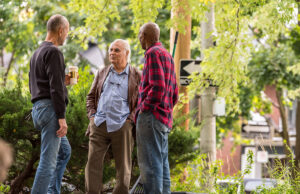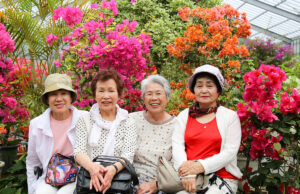Global Ageing Network’s Normative Statement to the UN OEWGA
The following statement was submitted to the United Nations 10th session Open-Ended Working Group on Ageing focusing on the normative elements of the rights to long-term and palliative care.
The Global Ageing Network is pleased to speak to the focus areas for normative content and we also and most willingly endorse the joint position statement presented by the Global Alliance for the Rights of Older Persons relating to normative content for this session.
It is our responsibility as a global society to be more aware of the risks and challenges for older members of our community, such as the uncertainty of access to quality long-term care and palliative care, as well as threats to people’s independence and autonomy. The majority of the 24,000 organisations in our network are providers of services direct to older persons. Hence, we are cognisant of the clear linkage between long-term care and an older person’s independence and autonomy.
It is vital therefore that our systems governing long-term care into the future act as frameworks to provide choice and opportunities to enable people to prosper, irrespective of social or health circumstances. The development of such systems must take into account that the vast majority of long-term care throughout the world is provided by individuals – family, neighbours, or other caregivers – often unpaid and informal. We must understand the importance of incorporating the promotion of preventative, wellness, and restorative services to foster healthy and successful ageing for all older adults.
The need for a formal instrument addressing the right for older people to access adequate long-term care and palliative care is highlighted by the failures of existing systems and regulatory regimes even in the more developed regions across the globe. For instance, the long-term care system in Australia, which is considered to be one of the more mature care systems in the world, is currently the focus of the highest form of national inquiry because of the failure of that system in relation to regulatory monitoring, funding and access. This provides a stark call for global attention to how older people in all places can exercise their right to adequate care, services, and support through their ageing journey and at the end of life.
In closing, we acknowledge the value of normative discussion on the listed focus areas, but highlight the need for definitive outcomes from this and subsequent sessions of the Open Ended Working Group on Ageing.

Recently Added
February 19, 2026
Statement to the United Nations: February 2026
January 22, 2026




